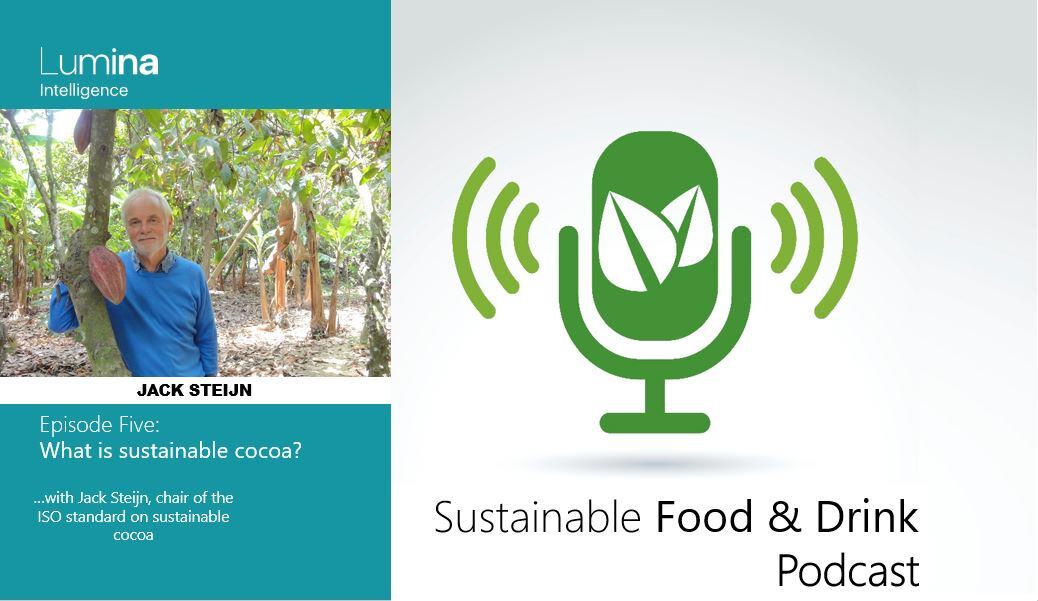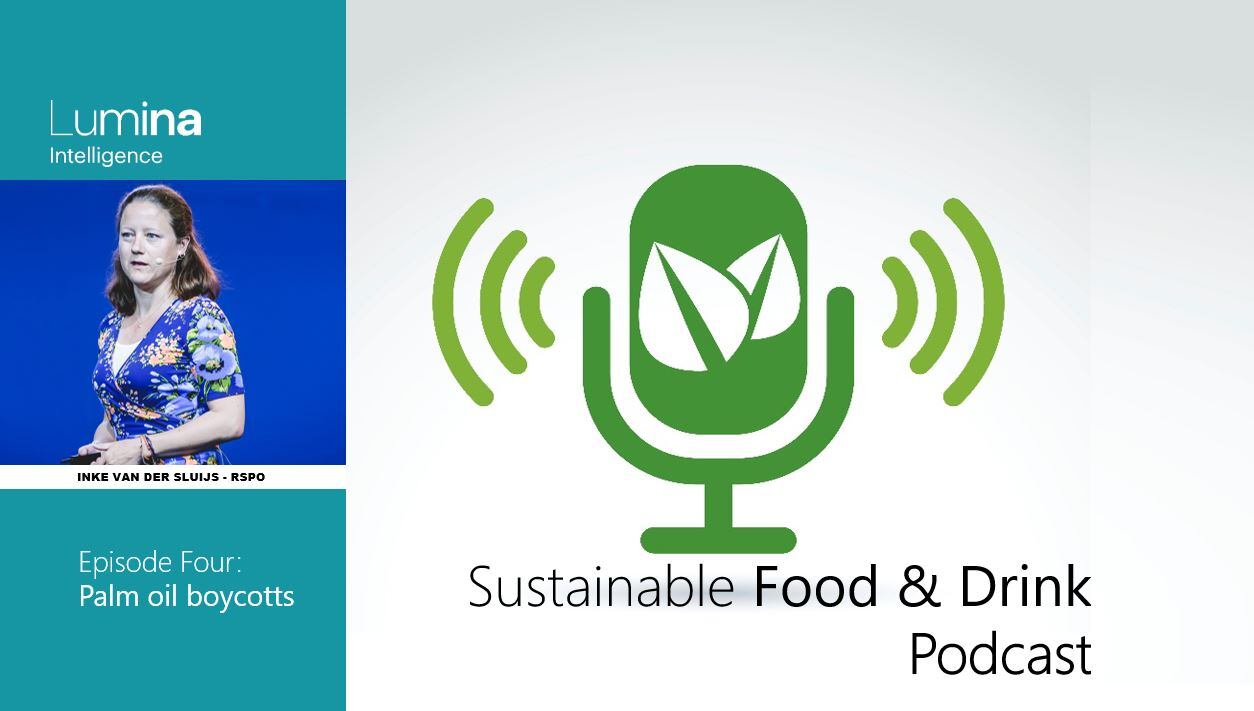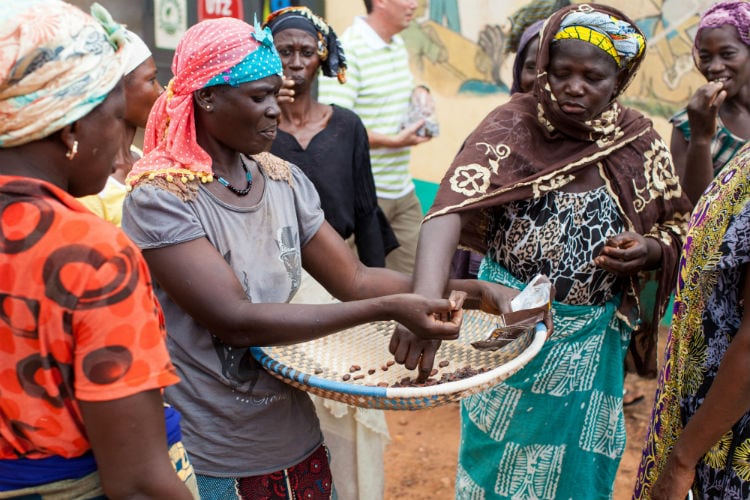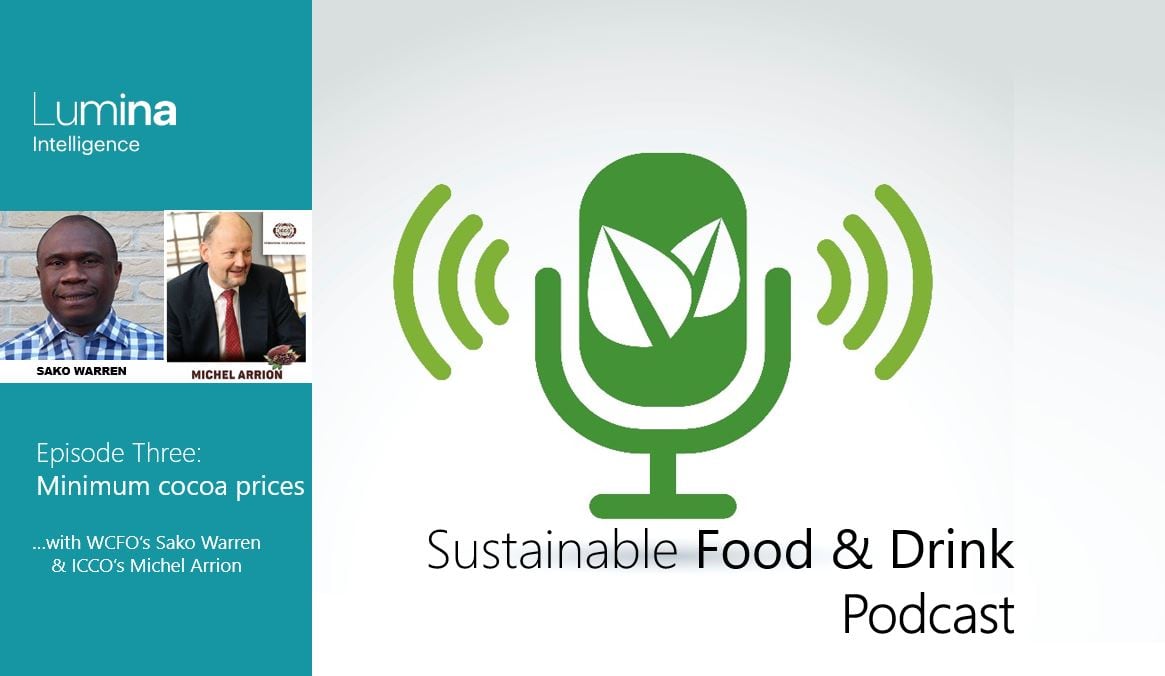After eight years of development, ISO 34101 on sustainable and traceable cocoa was published in May this year. Its four parts are available for purchase for around $120 per section.
It is the first ISO standard for an agricultural commodity.
No unsustainable cocoa in Europe in 10 years, says ISO chair
Speaking to Lumina Intelligence’s Sustainable Food & Drink Podcast, Jack Steijn, chair of the committee to develop the ISO cocoa standard said: “The objective of the standard is to help farmers become sustainable entrepreneurs.
Pre-empting EU regulation
Efforts to define sustainable cocoa began in 2011 as European Parliament considered setting its own standard.
“The initiators [(of the ISO standard] – mostly industry – said if this is coming towards us let’s take the initiative ourselves,” said Steijn.
The ISO standard was published in 2019, after being initially earmarked for 2016.
“If it is used this way, farmers will be emancipated. They will put in a position where they can decide about the future of their farm and decide whether their future lies in cocoa.”
Steijn estimates around 40% of global cocoa is certified or under a company sustainability programme.
He said the ISO standard will turn sustainable cocoa from niche to mainstream.
“On European markets you will not find unsustainable cocoa within let’s say 10 years,” he said.
‘No mention at all of paying farmers a fair price’
Antonie Fountain, managing director of the VOICE Network, a cocoa industry watchdog, said: “We don’t think you can say the ISO standard is the standard for sustainability.”
He said the social and economic elements of the standard were strong, but said he expected limited market uptake.
“[The ISO standard] doesn’t talk about price, it’s weak on the environment, it’s far too prescriptive on management systems, but most importantly because the problem in cocoa is not the farmers, it’s the system.
“...There’s absolutely no mention at all of paying farmers a fair price and you can’t call cocoa sustainable if the farmer has not been paid a fair price,” said Fountain, who led the social and environmental performance requirements of the standard.
Farm development plans to root out poverty
The ISO standard places requirements on farmer organizations.
These include a farm development plan for individual farmer members –where it’s decided if there’s an economic benefit for the farmer to become certified.
Steijn said the farm development plan should identify farmers that will gain no economic benefit from the standard, thus rooting out extreme poverty in cocoa.
“This way we make sure nobody would be lured into a certification process when it would not be economically beneficial to him,” he said.
Farmers are considered sustainable after meeting level one entry requirements as soon as they join the ISO approved programme or certification.
The farmer must meet other requirements for level two within five years and further requirements for level three – the final level - within 10 years.
Steijn said: “The investments of meeting the requirements of the standards should be borne by the first buyer, who would go into a contract for this.
“The contract would involve a right of first refusal for the harvest of that cooperative," he said.
The podcast asks:
- Why the ISO standard took eight years to develop
- If the standard guarantees farmers a living income
- If certification standards such as Fairtrade and Rainforest Alliance are already compliant
- If company programme standards such as Cocoa Life (Mondelēz) need to change
- What the implications are if a company doesn’t comply with the standard
- If the standard could become mandatory
- What happens to farmers that can’t participate
[Music credit: Blue Dot Sessions]
Sustainable Food & Drink Podcast - Lumina Intelligence
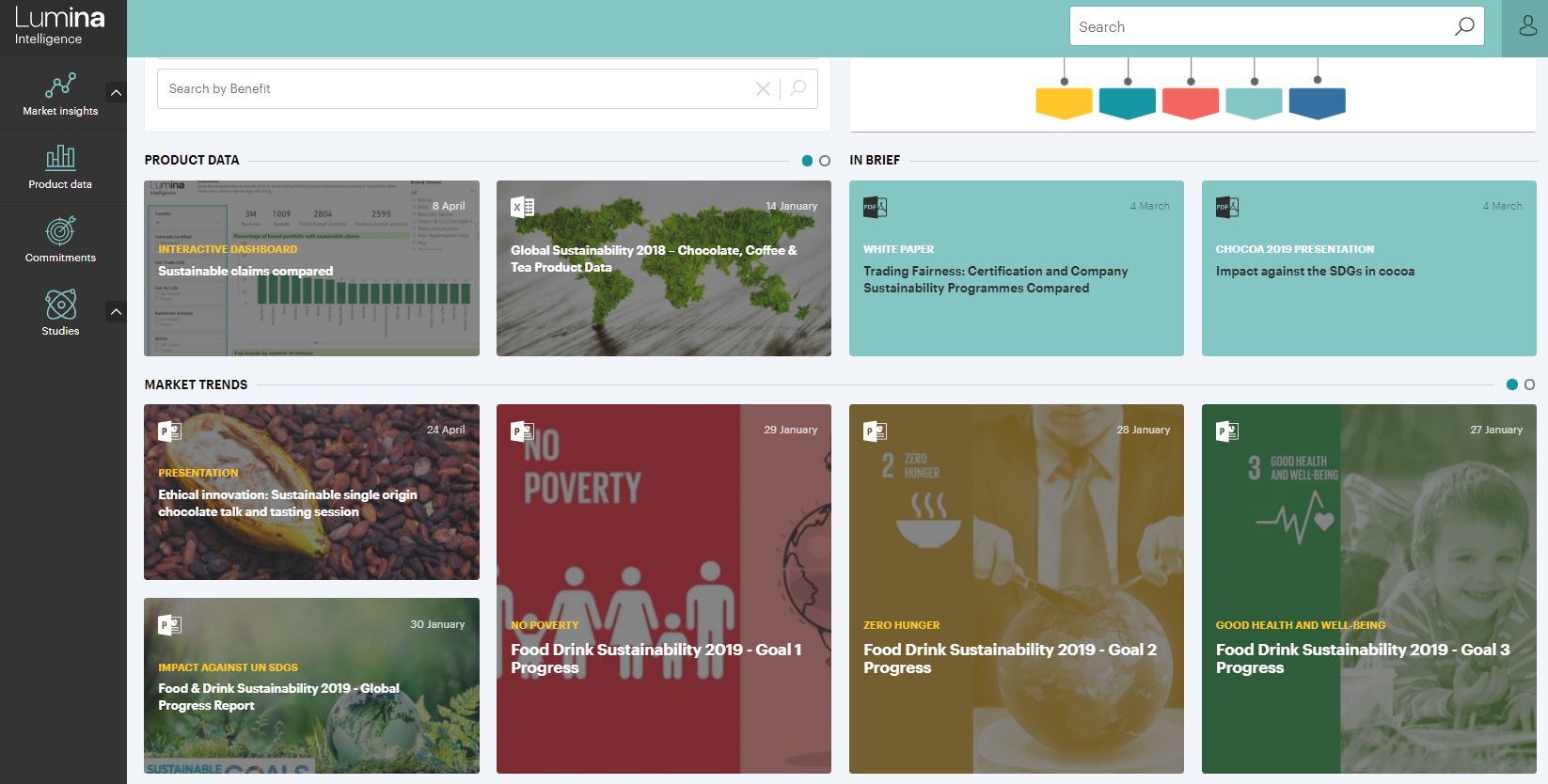
Lumina Intelligence Sustainability provides insights on the sustainable sourcing of cocoa, tea and coffee – three commodities facing similar social and environmental concerns.
The subscription service supports companies, suppliers, NGOs, governments and academics looking to strengthen their programmes, target research efforts and gauge demand for ethical products among online consumers. See website for further details.
Subscribe and Listen to Lumina's free Sustainable Food & Drink Podcast on iTunes & Spotify.

